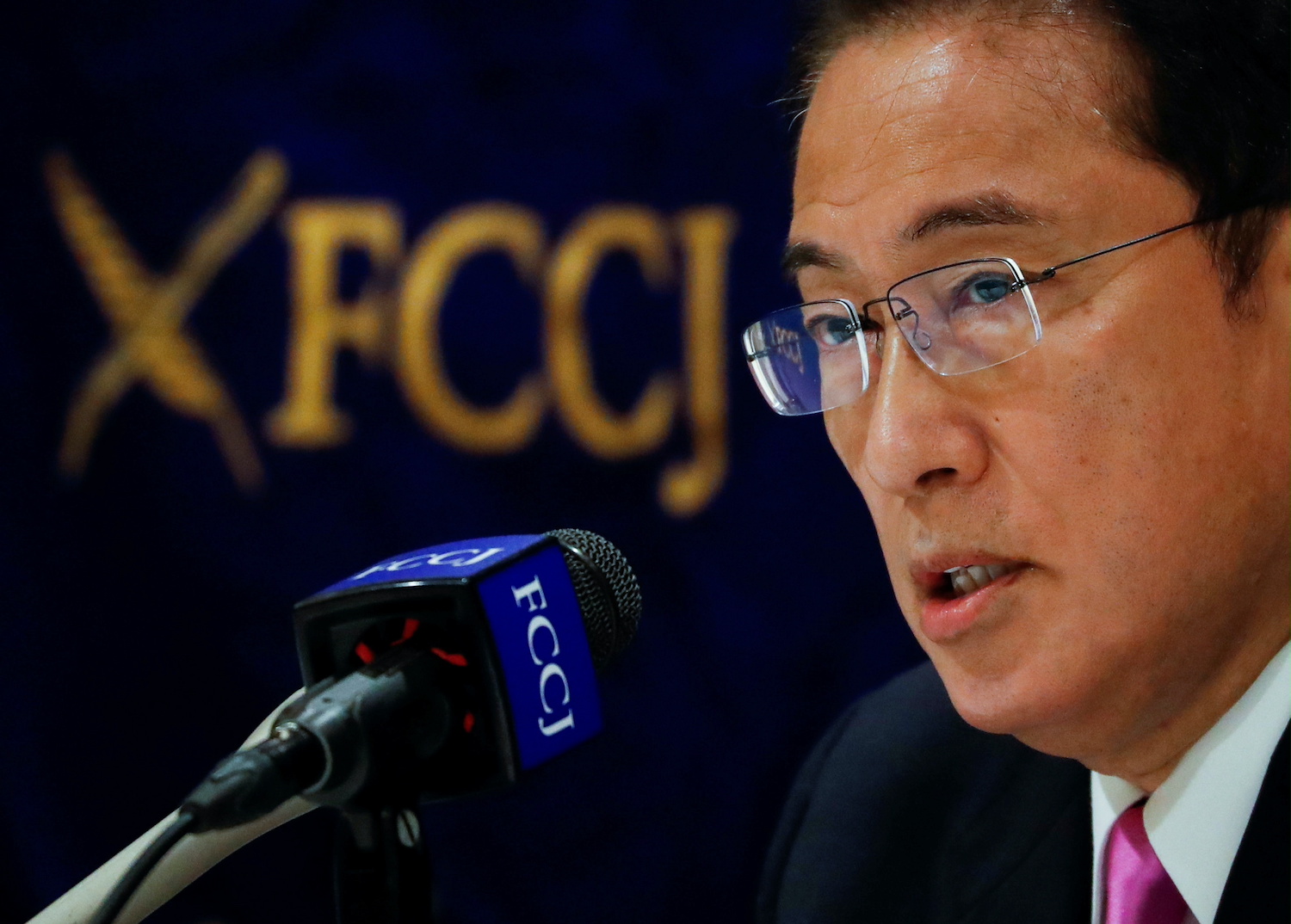Fumio Kishida, a former foreign minister, won the race on Wednesday to lead Japan’s ruling Liberal Democratic Party (LDP) party – and become the country’s next prime minister.
The soft-spoken Kishida, 64, won a run-off against vaccine minister Taro Kono with 257 votes to 170.
A former banker from Hiroshima, Kishida is set to become prime minister on Monday (October 4).
Kishida led Japan’s effort to coordinate US President Barack Obama’s historic visit to his home city in 2016, seven decades after it was devastated by the US dropping an atomic bomb at the end of World War Two.
Kishida is seen as a steady hand. He said last month that bottom-up consensus building is just as important in politics as a top-down approach. He will lead the LDP into a general election that analysts expect will be held in the first half of November.
Reactions to his victory were generally positive.
Koichi Nakano, a professor of political science at Sophia University, suggested that former prime minister Shinzo Abe would continue to ‘pull the strings’ of power behind the scenes.
“We know who will continue to hold power in the LDP – it’s (former premier Shinzo) Abe and (Finance Minister Taro) Aso and the right wing. There is no mood for generational change.
“A whole month of monopoly over TV and newspaper coverage in the run-up to the election cannot be bad for the LDP but the underwhelming result will dampen the celebratory mood quickly, possibly. The opposition must be relieved that they don’t have to fight against the darling of television (Kono).
“Kishida’s showing was respectable even among the rank and file members, so much so that he came out ahead in the first round, which no one expected.”
LITTLE CHANGE SEEN IN FOREIGN POLICY
Rand Corporation‘s Jeffrey Hornung said: “I don’t expect any big changes in foreign policy. The changes, where they occur, will likely be on the margins and in terms of style. Kishida will continue to prioritize the alliance and find ways to strengthen it: free and open Indo-Pacific will continue to be a mainstay of Japan’s diplomatic toolkit in its outreach to the region; and he will continue to take a hard position against China.”
The new PM’s position on Taiwan is also expected to follow the party line, Hornung suggested.
“Although there is nothing new policy-wise in terms of Japan’s thinking about Taiwan, the importance of Taiwan for Japan’s security, or even commitments to assist the US in a Taiwan contingency, the Suga administration has been publicly active in having a conversation about Taiwan. There is an appetite for continuing this approach within the LDP, but it will be interesting to see whether the new leader takes this approach, such as advocating for Taiwan’s inclusion in CPTPP (the Comprehensive and Progressive Agreement for Trans-Pacific Partnership),” he said.
MORE ‘ABENOMICS’
Masaki Kuwahara, a senior economist at Nomura Securities, said: “From the standpoint of economic growth, Kono may have been a better choice than Kishida given his focus on reform and renewable energy policy in the medium to long run. Given a fragile economy, there’s not much room for Kishida to deviate from Abenomics though.
“Kishida appears to focus on distribution of wealth but such left-leaning policy doesn’t necessarily mesh with economic growth. Kishida is good at building consensus though, which will bring stability to politics needed to steer socio-economy.
“As Kishida, or whoever, becomes new prime minister, monetary easing remains on track. Kishida is unlikely to exit from massive monetary stimulus or raise interest rates any time soon as doing so could boost the yen.”
• Reuters with additional editing by Jim Pollard
ALSO SEE:
Japan warns of possible defence crisis, greater tech rivalry
BOJ seen cutting 2021 growth forecast as Covid curbs hurt outlook
Japan companies heading to exit after Hong Kong crackdowns
























